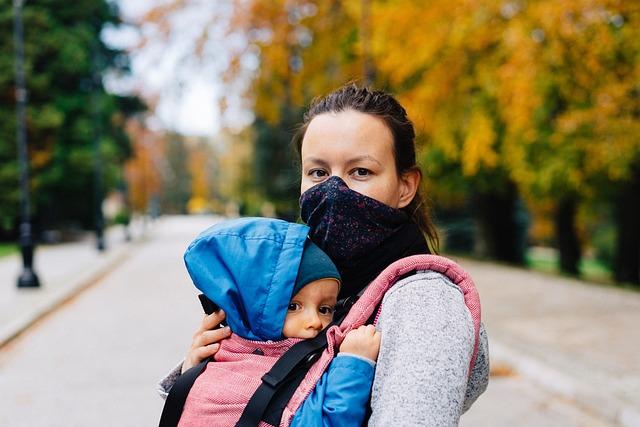Bringing a new baby into the world is nothing short of magical—and, let’s be honest, a little overwhelming. If you’re a new parent, you’ve probably found yourself scrolling through endless articles, trying to figure out the best way to keep your little one happy and healthy. Well, breathe easy! This newbie’s guide is here to break down baby health into simple, easy-to-follow tips that won’t have you stressing every second. From feeding and sleeping to those mysterious cries and diaper dilemmas,we’ve got your back. Let’s dive in and make this parenting journey a bit smoother, one step at a time!
Understanding your Baby’s Basic Health Needs
Every new parent wants to ensure their little one thrives,but understanding the essentials can feel overwhelming at first. At the core, your baby’s health rests on a few simple pillars: nutrition, hygiene, sleep, and regular check-ups. Feeding on demand helps keep your baby happy and growing,whether that’s breastfeeding or formula. Meanwhile, keeping your baby clean with gentle baths and diaper changes not only prevents rashes but also supports their overall comfort. Don’t forget, newborns typically sleep a lot — sometimes up to 16 hours a day — and this rest is crucial for their advancement.
Monitoring and responding to common baby cues can make all the difference. Look out for basic signs like:
- Hunger: Rooting and sucking movements
- Discomfort: fussiness or unusual crying
- Tiredness: Eye rubbing or yawning
Regular pediatric visits are a must, not just for vaccinations but also to track milestones and discuss any concerns. A fast glance at these comparative health indicators might help keep your peace of mind:
| Health Aspect | Typical range |
|---|---|
| Weight Gain | 5-7 oz/week |
| Sleep Duration | 14-17 hours/day |
| Diaper Changes | 6-10 times/day |
| Feeding Frequency | 8-12 times/day |

Spotting Common Newborn Illnesses and When to Call the Doctor
When it comes to newborns, recognizing signs of illness early can make all the difference. Keep an eye out for persistent fever above 100.4°F (38°C), unusual lethargy, or difficulty breathing. Changes in feeding habits, like refusing to nurse or bottle-feed, may also indicate that something’s off. Don’t ignore sudden changes in skin color—pale, blue, or yellowish tones are signals to act fast. Trust your instincts; if your baby feels or looks different from usual, it’s always better to be safe and reach out to your pediatrician.
Here’s a quick checklist for those moments when you’re unsure whether to call the doctor:
- High fever that doesn’t go down
- Continuous vomiting or diarrhea
- Difficulty breathing or persistent cough
- Less than 4-6 wet diapers in 24 hours
- Extreme fussiness or unresponsiveness
| Symptom | What It Could Mean | Action |
|---|---|---|
| Fever >100.4°F | Possible infection | Contact doctor immediately |
| Labored Breathing | Respiratory issues | Call emergency services |
| Infrequent Wet Diapers | Dehydration warning | Schedule doctor visit |
| Unusual Skin Color | Circulatory concerns | Seek medical attention |

Simple Daily Habits to Keep Your baby happy and Healthy
Creating a nurturing surroundings for your little one doesn’t have to be intricate. Starting with simple routines can make a big difference in your baby’s mood and well-being. Such as, maintaining consistent feeding times not only supports digestion but also sets up a comforting rhythm for your baby. Don’t forget the power of fresh air: a short daily stroll can boost their immune system and calm restless fussiness. Plus, gentle, playful interaction — like singing or making funny faces — strengthens your bond and mentally stimulates your baby, helping them develop faster than you’d expect!
Keeping track of basic care tasks can sometimes feel overwhelming, so here’s a quick rundown to make your days smoother:
- Hydration: Whether breastfeeding or formula, keep your baby well-hydrated. Check for wet diapers regularly.
- Sleep schedule: Aim for consistent nap and bedtime to improve mood and growth.
- Skin care: Use gentle, fragrance-free products and keep the baby dressed comfortably.
- Temperature: Dress your baby appropriately based on room temperature to avoid overheating.
| Habit | Benefit | Tip |
|---|---|---|
| Daily tummy time | Strengthens muscles | Start with 3 minutes |
| Consistent feeding | Better digestion | watch hunger cues |
| Regular naps | Improved mood | Keep a cozy sleep space |
| Outdoor walks | Vitamin D & fresh air | Use sun protection |
Practical Tips for Stress-Free Feeding and Sleep Routines
Establishing smooth feeding and sleep routines doesn’t have to be a battle. Start by creating a consistent schedule that gently guides your little one through their day. Babies thrive on predictability, so try to feed and put them down for naps around the same time each day. Keep an eye on hunger and tiredness cues—these tiny signals can help you avoid fussiness before it starts. Remember, flexibility is key; some days won’t go as planned, and that’s completely normal.
To make life easier, equip yourself with a few handy tricks:
- Set the mood: Dim lights and soft sounds help the baby wind down for sleep.
- Keep feeding calm: Avoid distractions and hold your baby comfortably during feeds.
- Track patterns: Jotting down feeding and sleep times can reveal helpful routines over time.
| Time | Activity | Tip |
|---|---|---|
| 7:00 AM | morning Feed | keep room softly lit |
| 9:30 AM | Nap Time | Use white noise |
| 12:00 PM | Midday Feed | burp gently after feeding |
| 2:00 PM | Afternoon Nap | Swaddle for comfort |
| 6:00 PM | Evening Feed | Use dim light setting |
| 8:00 PM | Bedtime Sleep | Rock gently or sing lullaby |
Q&A
Q&A: Newbie’s Guide to Baby Health – easy Tips for New Parents
Q: I’m a first-time parent and totally overwhelmed. What’s the most important thing to focus on for my baby’s health?
A: Take a deep breath—you’ve got this! The basics are your best friends: proper feeding (whether breastfeeding or formula), ensuring your baby gets enough sleep, keeping those diaper changes regular to watch for any issues, and scheduling all recommended pediatrician visits. These simple steps build a strong foundation.
Q: How frequently enough should I bathe my newborn?
A: Newborns don’t need daily baths—about 2-3 times a week is plenty. To much bathing can dry out their delicate skin. When you do bathe your baby, keep it quick and use gentle, fragrance-free baby soap.
Q: My baby won’t sleep through the night. Is that normal?
A: Totally normal! Newborns have tiny tummies and need to eat frequently,so expect night wake-ups. Over time,their sleep patterns will improve. Try to sleep when your baby sleeps, and don’t hesitate to ask for help if you’re feeling weary.
Q: What’s a quick way to check if my baby is sick?
A: Trust your instincts. Common signs include fever, unusual fussiness, feeding problems, or changes in poop and pee. Use a baby thermometer to check for fever, and if anything feels off, call your pediatrician. Better safe than sorry!
Q: How can I keep my baby’s skin healthy?
A: Keep it simple! use gentle, hypoallergenic products, avoid harsh detergents on clothes, and protect your baby from extreme cold or sun. Moisturize after baths if the skin seems dry. Oh, and diaper rash cream can be a lifesaver when needed.
Q: Any tips for making feeding less stressful?
A: For sure. Whether breastfeeding or bottle-feeding, create a calm environment. Feed on demand—don’t stress about strict schedules—and watch your baby for hunger cues. Keep plenty of burp cloths nearby and remember, practise makes perfect.
Q: What vaccinations does my baby need, and when?
A: Vaccinations are key! Your pediatrician will provide a schedule, but generally, babies get their first rounds of vaccines starting at birth and continuing throughout the first year.These protect against scary diseases and keep your little one safe.
Q: how can I keep my baby safe at home?
A: Baby-proofing starts early! Keep small objects, sharp things, and poisons out of reach. Always supervise tummy time and never leave your baby unattended on high surfaces. Use a properly installed car seat whenever you go out.
Q: I’m feeling anxious about being a new parent. Any advice?
A: You’re definitely not alone! Reach out to family, friends, or parenting groups. Take breaks when you can,and celebrate small victories. Remember, no parent is perfect—your love and care mean the world to your baby.
Feel free to bookmark this Q&A for those “but what now?” moments.Being a new parent is a wild ride, but with these easy tips, you’re off to an awesome start!
Key Takeaways
And there you have it—your crash course in baby health made simple! Remember, being a new parent is a wild ride full of learning curves, but with these easy tips in your back pocket, you’re already on the right track. Trust your instincts, lean on your support system, and don’t hesitate to reach out to your pediatrician whenever you’re unsure. Baby steps (literally and figuratively) are all part of the journey. So take a deep breath, enjoy those precious moments, and know you’ve got this! Here’s to happy, healthy babies and confident new parents!










